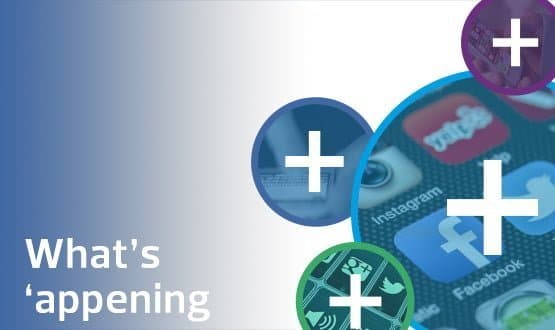Mobile health and app news in brief

News from the NHS
Leeds launches free-to-patient wi-fi
Leeds Teaching Hospitals NHS Trust has gone live with a free to patient Wi-Fi service, available across all 5 of its sites. The service has been funded by the hospital charity and is provided by Hospedia, in partnership with The Cloud. The Hospedia service provides a personalised landing page for each hospital, links to hospital information and opportunities to complete the friends and family test.
Nottingham Hospitals improve patient flow through mobile therapies referrals solution
Software designed by therapists and ICT leads at Nottingham University Hospitals NHS Trust and developed by Nervecentre Software is being used by therapy staff to improve patient flow and reduce delays. Accessed through mobile devices, the system is used by ward staff to allocate patient referrals, which are then instantly allocated to the most appropriate therapist. The mobile system also provides more comprehensive and detailed patient referral information than previously recorded.
NHS Education for Scotland creates health app
NHS Education for Scotland has worked with pharmacists, clinicians and researchers from across Scotland to convert medicine guidance for people with multiple medical conditions into a downloadable mobile app. It is also available via the Internet as a web-based resource. The app is a first for NHS Scotland and focuses on the 7-step medicines review process, providing clinicians with guidance at their fingertips, in clinical settings or the community.
Hackathon held to help migrants navigate the NHS
An NHS Navigation Hackathon was held at Google Campus on 5-6 March to help improve the NHS for migrants. The Guardian reports that an app for GP visits, which included a downloadable letter stating a person’s rights to healthcare in this country, won the two-day event. More than 100 developers, designers and NHS staff took part in the hackathon. It was organised by Raj Adgopul , who won the Mary Seacole award to design an app to help migrants understand how the UK healthcare system works.
Industry news
UpToDate offers podcasts
Clinical decision support resource UpToDate has introduced podcasts to provide medical professionals with a convenient way to access medical updates, and to stay abreast of changes and developments within the profession. The clinical podcasts are available to both subscribers and non-subscribers of the full UpToDate service and cover both “Practice Changing Updates” and “What’s New” topics based on recent medical journal articles.
Medelinked platform offers symptom checker
Online health platform Medelinked now features the Medelinked Symptom Checker integrated as part of the Medelinked mobile health app for Android and iOS. The symptom checker is alsooffered via a single aggregated Open API as part of the Medelinked Partner Development Programme for integration in third party products and services. The checker tells the patient what possible diseases they may have and directs them to more medical information, as well as listing the appropriate doctor to contact for further clarification.
Pfizer and IBM focus on Parkinsons
Pfizer and IBM have announced a research collaboration to develop remote monitoring solutions to transform how clinicians deliver Parkinson’s care. The approach will rely on a system of sensors, mobile devices, and machine learning to provide real-time, around-the-clock disease symptom information to clinicians and researchers. The goal is to obtain a better understanding of a patient’s disease progression and medication response to help inform treatment decisions and clinical trial design.
mHealth app developer survey results
Preliminary results from research2guidance's latest study into mHealth reveal the growing importance of health insurers as a distribution channel for mHealth solutions. Half of respondents believed that health insurers offered the second highest market potential as a distribution for solutions, behind app stores at 61%, but ahead of hospitals (38%) and doctors (42%). Around two-thirds also said mHealth solutions can cut costs through therapy adherence and wider adoption could save costs by shortening or avoiding hospital visits.




